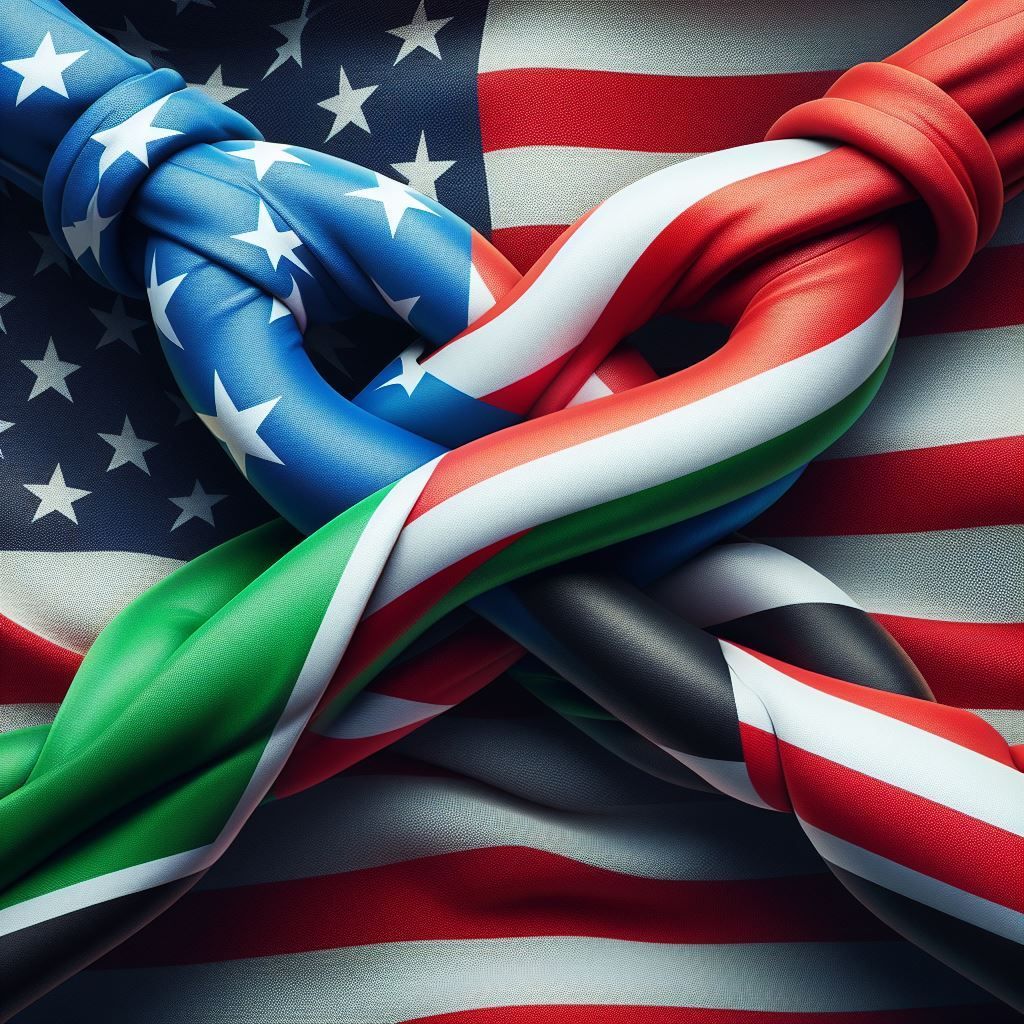Case Study: Rolling Back US Economic Sanctions On Sudan

The Issue:
For over two decades, Sudan had faced the harsh repercussions of strict economic sanctions imposed by the US beginning in 1993. These measures had significantly harmed the country's living standards, trade, investment, and public finances. Despite signing US-brokered peace deals with southern and Darfur rebel groups in 2005 and 2006, Sudan’s remained enforced firmly.
Our Solution:
Skills Applied: Government Relations, Public Affairs, Media Relations, Reputation Protection, Crisis Management
As a strategic communications consultant, Ahmed Badawi identified severe flaws in the government advocacy surrounding sanctions quickly. His ability allowed him to craft more nuanced and impactful messaging, notably stressing the unintended negative consequences of sanctions on ordinary Sudanese, which the government had neglected to champion.
He also devised and started anti-sanctions coalition-building to spur policy change in the US government on the sanctions. This ground-up building effort notably involved leveraging American companies with an immediate financial interest in seeing them relaxed and, in turn, justify trading with Sudan as helping ordinary Sudanese escape poverty as a means of corporate reputational protection (and indeed enhancement).
Additionally, Ahmed reached out across the Beltway, emphasising the politicised nature of Sudan's continued terrorist label despite its cooperation with the US in counterterrorism efforts.
He also advocated for resetting US-Sudan relations under the Obama administration.
Selected Highlights:
- In 2016, Ahmed Badawi delivered a needle-moving speech at the prestigious National Press Club (NPC) in Washington, D.C. for an event he had conceived, titled: "Insights: the unintended consequences of U.S. sanctions on Sudan's poor". The NPC event garnered attention from various media outlets including Forbes magazine, with the author having been invited on a ‘360’ to Sudan arranged by Ahmed prior to the event.
- The NPC event – held under the auspices of the Osgood Center for International Studies - and accompanying Q&A was attended by U.S. think tanks, journalists, lawyers, a former White House special assistant, an ex-Congress member - and, of course, senior officials from Sudan’s embassy in Washington, D.C. Ahmed also wrote the accompanying speech at the NPC for his co-speaker, the head of a women’s local NGO (who Ahmed had cultivated from Sudan), underscoring the particularly harsh impact of the sanctions on female livelihoods and advancement opportunities.
- As part of his coalition building efforts, Ahmed crafted meticulously communication collaterals for the Kenana Sugar Company (KSC), one of the top global sugar companies and majority owned by the government. These collaterals were presented by KSC’s general manager at a meeting with officials at the State Department, which Ahmed attended, too. The goal of the meeting for KSC was to get a sanctions waiver from the Office of Foreign Asset Control (OFAC) for Valmont, a leading American irrigation equipment supplier. This would not only help KSC, but also bolster food security and increase women's income in rural areas of Sudan, where KSC employed a high number of female workers.
- In 2009, Ahmed had made waves earlier with a groundbreaking op-ed published in
The Guardian. This was the first time anyone had shed light on the unintended impact of US sanctions on vital private remittances inflows to Sudan. The piece was a crucial step in rebuilding Sudan's reputation, as it brought attention to the unjust terrorist label imposed on the country.
- As part of his efforts to remove the US terrorism designation from Sudan, Ahmed also worked closely with and counselled senior Sudanese government officials (including the director of national intelligence) on the issue, and put together a presentation advocating for the immediate lifting of the terrorism designation The Time is Now – Remove the SST Designation From Sudan. which was received by key US think tanks like the Atlantic Council that had influence on the direction of US policy towards Sudan.
- He also wrote an op-ed for the
Royal Affairs Society,
advocating convincingly for the transformation of US-Sudan bilateral relations under the
Obama
administration
It’s Time for the US to Press the Reset Button on Sudan.
The Impact:
Through skilful media outreach, counsel, and strategic coalition-building tactics to targeted stakeholders in the USA, Ahmed Badawi played a pivotal role in shaping narratives and directly influencing critical policy shifts that dismantled the crippling sanctions on Sudan. He helped shift not only the US government and American activist groups’ perceptions surrounding the sanctions issue, but also, to a considerable degree, rebuild the reputation of the Sudanese government with its US counterpart as well.
Notably, in 2011, his nuanced efforts led to the US government lifting restrictions on private remittances from Sudan's largest bank and granting an exemption for Valmont to export irrigation equipment the previous year. Furthermore, Ahmed helped the Sudanese government successfully secure exemptions through OFAC for the export of American commercial aviation equipment.
These achievements culminated in a significant milestone in 2015, when US President Obama suspended all economic sanctions, with the administration acknowledging privately to the Sudanese government the crucial impact of the National Press Club event, profiled in Forbes magazine, had made in creating the political space both amongst US activist groups and cross-party support in congress for the sanctions rollback.
Thanks in no small part to Ahmed's public affairs efforts, there was also a significant impact on creating political space in the Beltway that led to the removal of Sudan's terrorism designation under President Trump in 2019.

